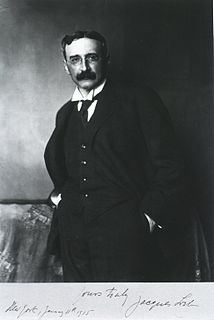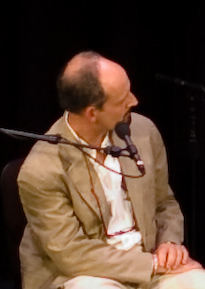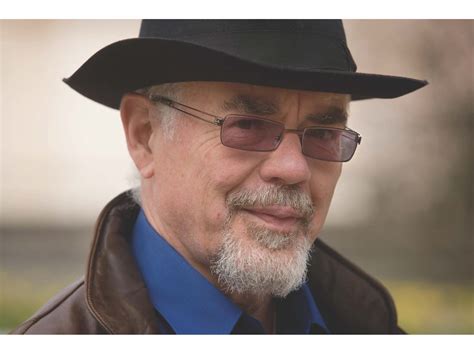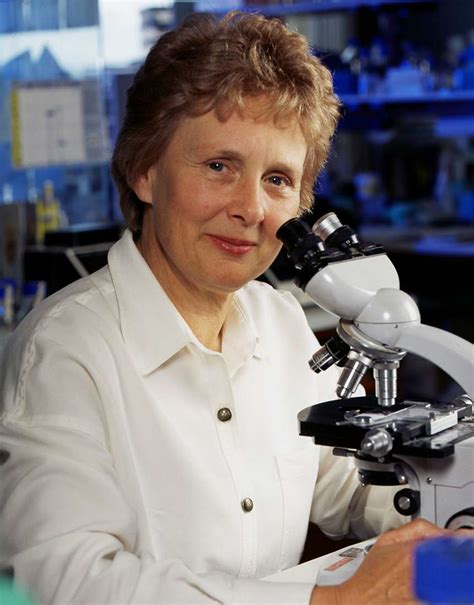A Quote by Rachel Carson
We have looked first at man with his vanities and greed and his problems of a day or a year; and then only, and from this biased point of view, we have looked outward at the earth he has inhabited so briefly and at the universe in which our earth is so minute a part. Yet these are the great realities, and against them we see our human problems in a different perspective. Perhaps if we reversed the telescope and looked at man down these long vistas, we should find less time and inclination to plan for our own destruction.
Quote Topics
Against
Biased
Day
Destruction
Different
Different Perspective
Down
Earth
Find
First
Great
Greed
His
Human
Human Problems
Inclination
Less
Less Time
Long
Looked
Man
Minute
Only
Our
Outward
Own
Part
Perhaps
Perspective
Plan
Point
Point Of View
Problems
Realities
Reversed
See
Should
Telescope
Them
Then
Time
Universe
View
Vistas
Which
Year
Related Quotes
The Bible is like a telescope. If a man looks through his telescope, then he sees worlds beyond; but if he looks at his telescope, then he does not see anything but that. The Bible is a thing to be looked through, to see that which is beyond; but most people only look at it; and so they see only the dead letter.
'Fire' does not matter, 'earth' and 'air' and 'water' do not matter. 'I' do not matter. No word matters. But man forgets reality and remembers words. The more words he remembers, the cleverer do his fellows esteem him. He looks upon the great transformations of the world, but he does not see them as they were seen when man looked upon reality for the first time. Their names come to his lips and he smiles as he tastes them, thinking he knows them in the naming.
Our roots are in the dark; the earth is our country. Why did we look up for blessing -- instead of around, and down? What hope we have lies there. Not in the sky full of orbiting spy-eyes and weaponry, but in the earth we have looked down upon. Not from above, but from below. Not in the light that blinds, but in the dark that nourishes, where human beings grow human souls.
Those who dwell among the beauties and mysteries of the earth are never alone or weary of life. Those who contemplate the beauty of the earth find reserves of strength that will endure as long as life lasts. The more clearly we can focus our attention on the wonders and realities of the universe, the less taste we shall have for destruction.
It's funny. When we were alive we spent much of our time staring up at the cosmos and wondering what was out there. We were obsessed with the moon and whether we could one day visit it. The day we finally walked on it was celebrated worldwide as perhaps man's greatest achievement. But it was while we were there, gathering rocks from the moon's desolate landscape, that we looked up and caught a glimpse of just how incredible our own planet was. Its singular astonishing beauty. We called her Mother Earth. Because she gave birth to us, and then we sucked her dry.
Glory to God in highest heaven, Who unto man His Son hath given; While angels sing with tender mirth, A glad new year to all the earth. Martin Luther If this is to be a Happy New Year, a year of usefulness, a year in which we shall live to make this earth better, it is because God will direct our pathway. How important then, to feel our dependence upon Him!
Accepting the view that man was prior in the creation, some Scriptural writers say that as the woman was of the man, therefore, her position should be one of subjection. Grant it, then as the historical fact is reversed in our day, and the man is now of the woman, shall his place be one of subjection?
In the beginning, God created the earth, and he looked upon it in his cosmic loneliness. And God said, "Let Us make living creatures out of mud, so the mud can see what We have done." And God created every living creature that now moveth, and one was man. Mud as man alone could speak. God leaned close to mud as man sat, looked around, and spoke. "What is the purpose of all this?" he asked politely. "Everything must have a purpose?" asked God. "Certainly," said man. "Then I leave it to you to think of one for all this," said God. And He went away.
We on Earth have just awakened to the great oceans of space and time from which we have emerged. We are the legacy of 15 billion years of cosmic evolution. We have a choice: We can enhance life and come to know the universe that made us, or we can squander our 15 billion-year heritage in meaningless self-destruction. What happens in the first second of the next cosmic year depends on what we do, here and now, with our intelligence and our knowledge of the cosmos.
The spirit of Christmas lives with us. We are the protectors of the real tradition of Christmas-peace on Earth and Goodwill to all. We are the hope of Man-the only hope. Mankind's salvation lies within our hands. With our tech and ability we can create here on Earth a real heaven where men can be free. In our hands lies the power to restore to Man his determinism and all that he finds good in himself-his honesty, his integrity, and the thrill of being of real help to others. A very Merry Christmas to you all and a bright friendly new year.
The motive of science was the extension of man, on all sides, into Nature, till his hands should touch the stars, his eyes see through the earth, his ears understand the language of beast and bird, and the sense of the wind; and, through his sympathy, heaven and earth should talk with him. But that is not our science.
The earth is not a mechanism but an organism, a being with its own life and its own reasons, where the support and sustenance of the human animal is incidental. If man in his newfound power and vanity persists in the attempt to remake the planet in his own image, he will succeed only in destroying himself - not the planet. The earth will survive our most ingenious folly.




































